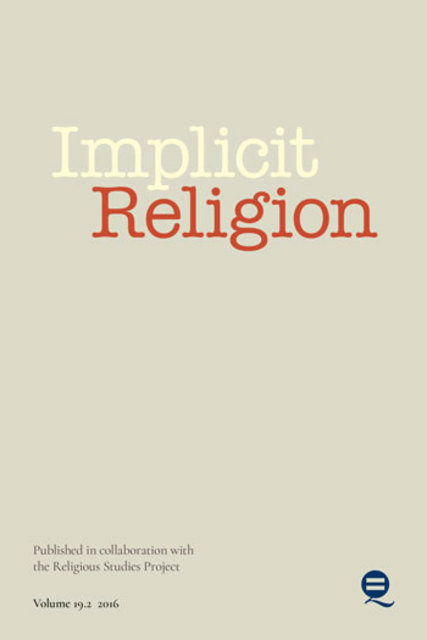Religion as the Transmission of An Authoritative Tradition

Full description
Timothy Fitzgerald’s critique of the category “religion” was based on two main objections: the study of religion as a distinct discipline has grown out of the historical collusion with colonial interests that has culminated in the modern division between religion and the secular; by associating the term “religion” with sacred entities, theological assumptions have been smuggled into so-called scientific studies of religion. In this paper, I offer my own non-theological, sociocultural working definition of religion in an effort to separate “the sacred” from “religion.” I argue that religion consists of identifiable communities that adhere to traditions that are transmitted from generation to generation with an overwhelming authority. I conclude that Fitzgerald’s critique of religion does not require scholars to abandon the category, but to re-think how they use the academic findings they have extracted from their research subjects. To advance beyond Fitzgerald’s argument, I contend that academics need to work collaboratively with the religious communities they are researching by acknowledging them as the legitimate owners of the knowledge that is embedded in their authoritative traditions.
- typeImage
- created on
- file formatjpeg
- file size13 KB
- container titleImplicit Religion
- creatorJames L. Cox
- issueISSN 1743-1697 (online)
- publisherEquinox Publishing Ltd.
- publisher placeSheffield, United Kingdom
- rightsEquinox Publishing Ltd.
- volume
- doi
We use cookies to analyze our traffic. Please decide if you are willing to accept cookies from our website. You can change this setting anytime in Privacy Settings.
